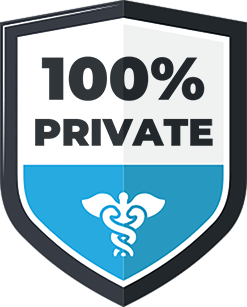Complete Blood Count (CBC) with Differential Popular
- Secure and Confidential Results
- Over 4,500 CLIA-Certified Labs U.S. Labs
- Most Results in 1-3 Days
- 110% Price Guarantee
About Our Complete Blood Count (CBC) with Differential
The Complete Blood Count (CBC) test gives an overall view of general health by measuring the health of red blood cells, white blood cells, and platelets. These cells, respectively, provide oxygen to various tissues and organs, help the immune system fight off infections, and assist in the formation of blood clots and the regeneration of new tissues.
Our CBC test includes testing for 10 components of the blood:
- Red Blood Cell Count (RBC)
- Red Blood Cell Distribution Width (RDW)
- Mean Corpuscular Volume (MCV)
- Hematocrit
- Hemoglobin (Hgb, Hb)
- Mean Corpuscular Hemoglobin (MCH)
- Mean Corpuscular Hemoglobin Concentration (MCHC)
- White Blood Cell Count (WBC)
- Percentage and Absolute Differential Counts / White Blood Cell Differential
- Platelet Count
What does the CBC Test Measure?
- Red Blood Cell Count (RBC) - Measures the amount of red blood cells (erythrocytes) in the blood. With the help of hemoglobin, red blood cells carry oxygen throughout the body.
- Red Blood Cell Distribution Width (RDW) - Provides the range of sizes of red blood cells. Normal red blood cells maintain a standard size of 6 to 8 micrometers (µm) in diameter. If cells are larger, your RDW blood test values will have higher numbers. This means you may have a nutrient deficiency, anemia, or another underlying condition.
- Mean Corpuscular Volume (MCV) - Finds the average size of red blood cells in the body. Coupled with the RDW, this will help the doctor determine how bad the condition is.
- Hematocrit - Determines the amount of space red blood cells take up in the blood. This is affected by the size and number of red blood cells.
- Hemoglobin (Hgb, Hb) - Measures the amount of hemoglobin in the blood. Hemoglobin is a protein found in red blood cells that carries oxygen from the lungs and transports it to the various tissues and organs throughout the body. It also transports carbon dioxide back to the lungs to be converted into oxygen.
- Mean Corpuscular Hemoglobin (MCH) - Provides the average amount of hemoglobin in each red blood cell.
- Mean Corpuscular Hemoglobin Concentration (MCHC) - Identifies the amount of hemoglobin concentrated in a given volume of red blood cells.
- White Blood Cell Count (WBC) - Detects the amount of white blood cells in the body. White blood cells fight off infections and foreign agents that may infect the body.
- Percentage and Absolute Differential Counts / White Blood Cell Differential - Provides information on the following five types of white blood cells in absolute numbers as well indicates the percentage that they represent in the wbc makeup:
- Neutrophils - protect the body from bacterial infections
- Lymphocytes - protect the body against viruses, fungi, and bacteria
- Monocytes - consume dead or damaged cells
- Eosinophils - kill microbes that contribute to allergic reactions
- Basophils - release histamines during allergic reactions
- Platelet Count - Identifies the amount of platelets in the blood. Platelets are used to help form blood clots and regenerate new tissue.
Who should Take the CBC Test?
A Complete Blood Count Test is taken to:
- Provide basic information about blood health
- Establish a baseline before beginning medication
- Monitor the progression of a disease
- Confirm that a health condition exists
Consider a CBC test if you have any of the following signs of infection:
- Weakness
- Tiredness
- Inflammation
- Bruising
- Bleeding
- Symptoms of abnormal levels of any of the blood components (listed below)
A Complete Blood Count Test is not a diagnostic test and will not diagnose any specific disease. Other tests will be need to be performed to determine the cause(s) of abnormal results.
Interpreting the CBC Test Results
Results may be affected by diet, medications, menstrual cycle, and other factors. Talk to a healthcare provider about what could have affected your results.
Red Blood Cells
- Low levels of red blood cell count, hemoglobin, and/or hematocrit may indicate malnutrition, bleeding, kidney disease, and/or anemia.
- Symptoms of low rbc, hemoglobin, and/or hematocrit include weakness, fatigue, shortness of breath, dizziness or lightheadedness, cold hands, cold feet, irregular heartbeats, dry skin, and headaches.
- High red blood cell count, hemoglobin, and/or hematocrit may indicate dehydration, polycythemia, and/or erythrocytosis.
- Symptoms of high rbc, hemoglobin, and/or hematocrit include headache, dizziness, easy bruising/bleeding, blurred vision, weakness, fatigue, itchiness, shortness of breath, excessive sweating, unexplained weight loss, and more.
- Keep in mind that polycythemia and erythrocytosis may not exhibit any symptoms, and without treatment, both can be fatal.
White Blood Cells
- Low white blood cell count and differential levels (leukopenia) may indicate an autoimmune disorder, bone marrow disorder, congenital disease, and/or malnutrition.
- Symptoms of leukopenia include fever, chills, sweating, fatigue, weakness, shortness of breath, and more.
- High white blood cell count and differential levels (levels (leukocytosis) may indicate an infection and/or a reaction to medication.
- Symptoms of leukocytosis include fever, bleeding, bruising, weakness, fatigue, trouble breathing, blurred vision, poor appetite, foggy thoughts, dizziness, and more.
Platelet Count
- Low platelet count (thrombocytopenia) may indicate prolonged bleeding, or an issue with the bone marrow (where platelets are produced).
- Thrombocytopenia symptoms include bruising, prolonged bleeding (cuts), blood in urine/stools, heavy menstrual flows, fatigue, jaundice, bleeding in gums, pinhead-sized spots -- rash (petechiae).
- High platelet count (thrombocytosis) may indicate a bone marrow disorder.
- Thrombocytosis symptoms include headache, chest pain, weakness, numbness in the hands and feet, dizziness, or lightheadedness.
If you’re experiencing any symptoms of abnormal red blood cells, white blood cells, or platelets, we recommend that you seriously consider a CBC test.









